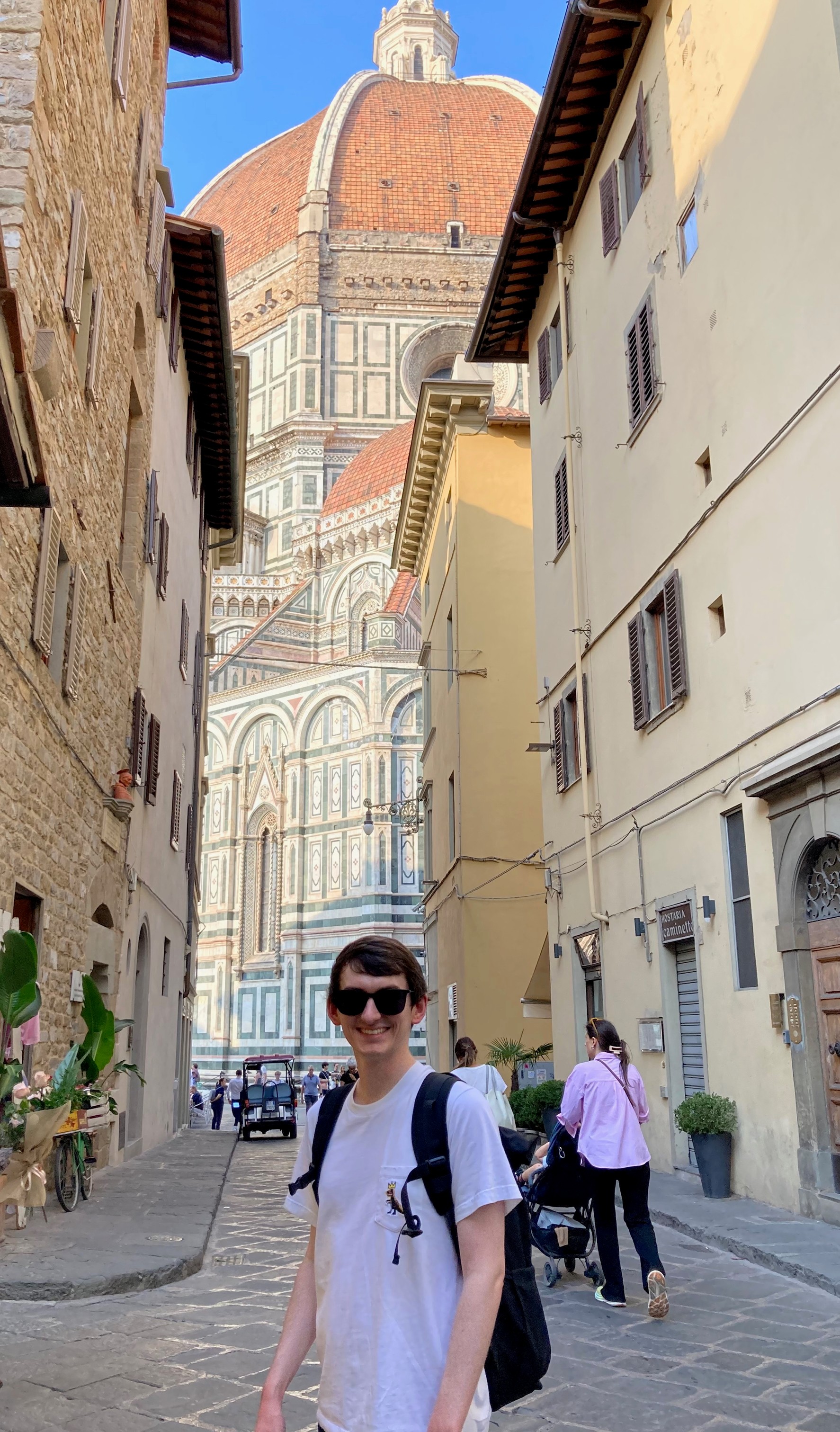In this blog post, we feature Dr. Lewis Mosby. Lewis is a Postdoctoral Researcher in the Mathematical and Physical Biology Lab at the Francis Crick Institute, mentored by Zena Hadjivasiliou. Lewis received his Ph.D. in biophysics at the University of Warwick before becoming an Early Career Fellow at the Institute of Advanced Study. His current research focuses on using mathematical and computational techniques to study the evolution of unexpected collective behaviour in biological systems.
When did you first become interested in mathematics and biology?
I’ve always had an interest in solving puzzles. At school, I found subjects such as maths and science the most interesting. Even if questions were challenging, they always had a clear answer. Nonetheless, encouraged by my school, I originally applied to study medicine, but I was unsuccessful. After that, I felt like I could pursue my true interests: applying mathematical techniques to answer new and unusual problems by studying physics. This was definitely a better fit for me! At university, I enjoyed learning how complex systems could be broken down into small, solvable parts. This led me to learn coding, which changed the way I think about solving problems. It was my thermal and statistical physics modules that renewed my interest in biology. Thanks to passionate lecturers, I discovered how the mathematical and computational techniques that I’d been learning could be applied in a biological setting.
Was the decision to do a Ph.D. an obvious and easy choice?
Towards the end of my studies, I realised I wanted to start applying all the techniques I’d mastered to new and exciting biological questions. However, I hadn’t studied biology for four years at that point. And, while my Master’s degree gave me a solid start in mathematical and coding techniques, I was aware that there were still gaps in my knowledge. There was so much more for me to learn! Pursuing a Ph.D. seemed like the best opportunity to advance my technical skills while also challenging my creativity in the application of the skills I’d already picked up during my studies.
What are the main biological research questions that you are interested in?
Mathematical modelling allows us to study and understand complex biological systems by investigating how large-scale properties can emerge from small and simplified parts. Yet, there are so many biological systems that haven’t been studied using a theoretical approach. I find this fascinating! In my research, I’m particularly interested in investigating the emergence of unexpected and perhaps counterintuitive phenomena in the context of biological self-organisation using cutting-edge mathematical and computational techniques.
For example, you might expect random noise to hinder biological organisation by disrupting large-scale correlations. Yet, biological systems have evolved to actually exploit noise to maintain and generate useful outputs.
Theoretical models and simulations can help us understand how and why such fascinating and unexpected behaviours may have been preferentially selected for over time by evolution.
What mathematical and computational tools do you find useful in your work?
I think the most valuable skill I’ve learned is how to extract key information from a physical/biological system and translate it into a simple mathematical model (usually written in the form of partial differential equations). The exact method of solution then strongly depends on the model itself. I always find that being able to solve equations (or approximations of them) analytically using pen and paper is incredibly valuable to guide simulations, and vice versa. I primarily code in the Julia language since it can solve systems of differential equations extremely quickly, but I’ve coded in C, C++, MATLAB, Python, Mathematica, and ImageJ in the past. It’s handy to have many different tools in your toolbox so you can always pick the one best-suited for the problem at hand! I think a lot of the fun of working in the field of biophysics is finding a new way to investigate a problem, which helps reveal novel features and intuition about how a system works.
What makes you passionate about your work?
I enjoy working at the interface between two very different fields of research. This allows me to constantly learn and/or apply the techniques I’ve learned throughout my career in novel ways. For example, during my Ph.D., I used code designed for tracking the motion of galaxies to investigate how cytoskeletal filaments move inside cells! Similarly, while I’m learning so much about biology, I enjoy being in a position where I can use my mathematical knowledge to suggest novel approaches to tackle difficult biological questions and/or even come up with interesting directions to study next.
I think that this kind of collaborative mindset, where people can inspire each other and push each other in exciting new directions, is the future of scientific research.

What do you like to do in your spare time outside of work?
In my spare time, I love playing games of all varieties (board, computer, card), doing art, and travelling whenever I can. I think it’s important to have a good escape from the tricky problems we’re trying to solve at work, and I often find that my best ideas pop up out of nowhere while I’m thinking about something else!
Any advice for someone considering a career in mathematical biology?
Communication and presentation skills are a must for any career in science, but I think that working at the interface between two very different fields requires you to be able to really break down your work into the key messages you’re trying to convey and then explain them clearly to non-experts. The same is also true in reverse; it can be tricky to be exposed to high-level work in a field that you didn’t study at university.
I think that the kinds of biophysical problems at the forefront of science today can only really be answered by people from different disciplines coming together and helping each other!